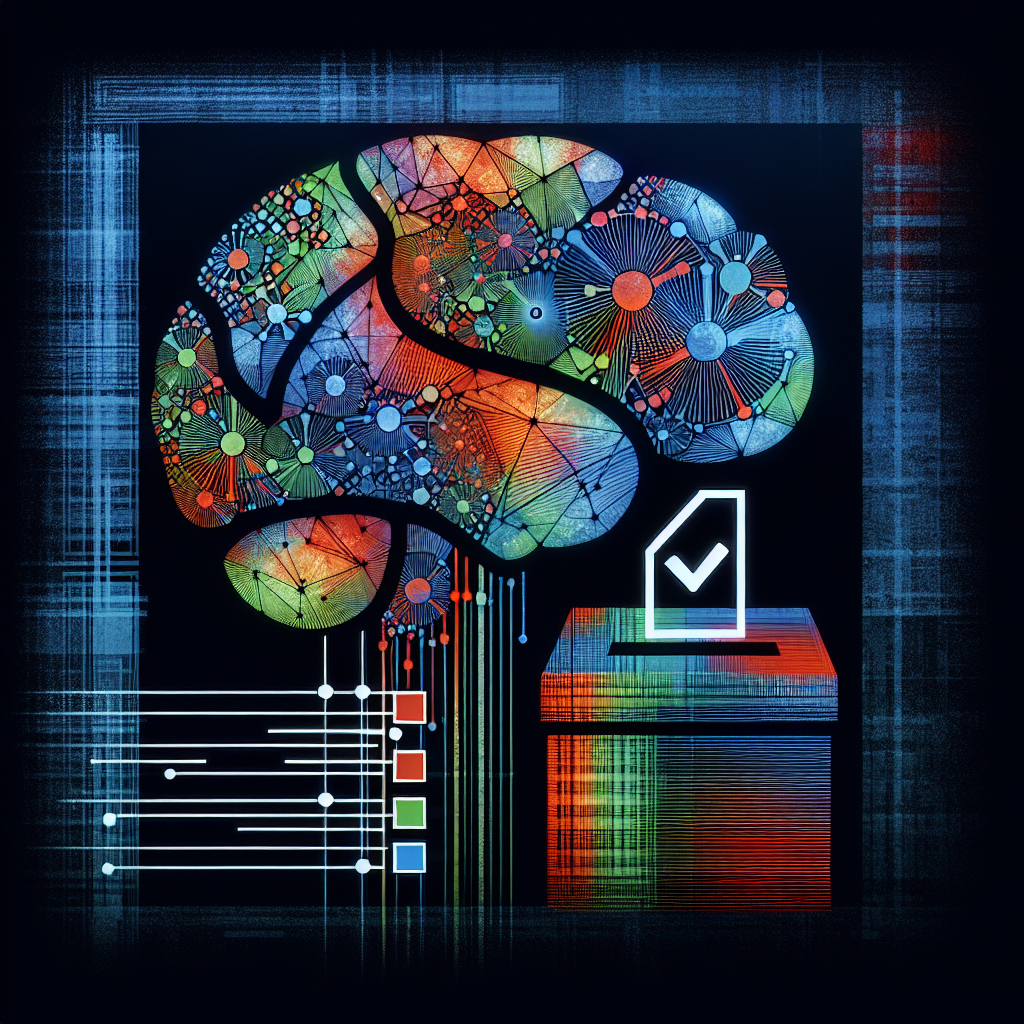The use of artificial intelligence (AI) in electoral processes and voting systems is becoming increasingly prevalent in modern democracies around the world. AI technology has the potential to revolutionize the way elections are conducted, making them more secure, efficient, and accessible to all citizens. In this article, we will explore the various ways in which AI is being utilized in electoral processes and voting systems, as well as address some common questions and concerns regarding its implementation.
One of the primary ways in which AI is being used in electoral processes is through the development of voter registration and identification systems. Traditionally, voter registration has been a manual and time-consuming process, often leading to inaccuracies and inefficiencies. AI technology can streamline this process by automatically verifying voter information, reducing the risk of fraud and ensuring that only eligible individuals are able to vote.
AI-powered identification systems can also help to prevent voter impersonation and other forms of electoral fraud. By utilizing biometric data such as fingerprints or facial recognition, these systems can accurately verify the identity of voters, making it more difficult for individuals to cast fraudulent votes.
AI is also being used to improve the security of voting systems. Cybersecurity threats have become a major concern in recent years, with hackers attempting to infiltrate voting systems and manipulate election results. AI technology can help to detect and prevent these threats by analyzing patterns of behavior and identifying potential vulnerabilities in the system.
Furthermore, AI can be used to analyze voter behavior and preferences, helping political parties and candidates to tailor their campaigns and messages to specific demographics. By analyzing social media data, polling information, and other sources of data, AI can provide valuable insights into voter sentiment and help to identify key issues that are important to different groups of voters.
Another area where AI is making an impact is in the prediction of election outcomes. By analyzing historical data and trends, AI algorithms can generate accurate forecasts of election results, helping political analysts and policymakers to make informed decisions. This can also help to increase voter turnout by providing citizens with a clearer understanding of the potential impact of their vote.
However, despite the many potential benefits of AI in electoral processes, there are also some concerns and challenges that need to be addressed. One of the main concerns is the potential for bias in AI algorithms. If these algorithms are trained on biased data or programmed with specific biases, they may inadvertently perpetuate discrimination or unequal treatment of certain groups of voters.
There are also concerns about the security and privacy implications of using AI in electoral processes. For example, the use of biometric data for voter identification raises questions about the protection of individuals’ personal information and the potential for misuse of this data. Additionally, the reliance on AI technology for election predictions could have unintended consequences, such as influencing voter behavior or disenfranchising certain groups of voters.
To address these concerns, it is important for governments and election authorities to implement strict regulations and safeguards to ensure the ethical and responsible use of AI in electoral processes. This includes transparency in the development and deployment of AI algorithms, as well as mechanisms for accountability and oversight to prevent misuse of the technology.
In conclusion, the use of AI in electoral processes and voting systems has the potential to transform the way elections are conducted, making them more secure, efficient, and inclusive. By harnessing the power of AI technology, governments and election authorities can improve the accuracy and fairness of elections, while also increasing voter participation and engagement. However, it is important to address the ethical, security, and privacy concerns associated with AI in order to ensure that its benefits are realized in a responsible and sustainable manner.
FAQs:
1. Is AI technology safe and secure for use in electoral processes?
– While AI technology can improve the security of voting systems, there are concerns about the potential for bias and misuse of the technology. It is important for governments and election authorities to implement strict regulations and safeguards to ensure the ethical and responsible use of AI in electoral processes.
2. How can AI technology help to increase voter turnout?
– By analyzing voter behavior and preferences, AI can provide valuable insights into voter sentiment and help to identify key issues that are important to different groups of voters. This can help political parties and candidates to tailor their campaigns and messages to specific demographics, increasing voter engagement and turnout.
3. What are some of the challenges associated with the use of AI in electoral processes?
– Some of the main challenges include the potential for bias in AI algorithms, security and privacy concerns, and the ethical implications of using AI technology for election predictions. It is important for governments and election authorities to address these challenges through strict regulations and oversight.
4. How can governments ensure the responsible use of AI in electoral processes?
– Governments can ensure the responsible use of AI by implementing transparency in the development and deployment of AI algorithms, as well as mechanisms for accountability and oversight to prevent misuse of the technology. It is also important to engage with stakeholders and the public to address concerns and build trust in the use of AI in electoral processes.

